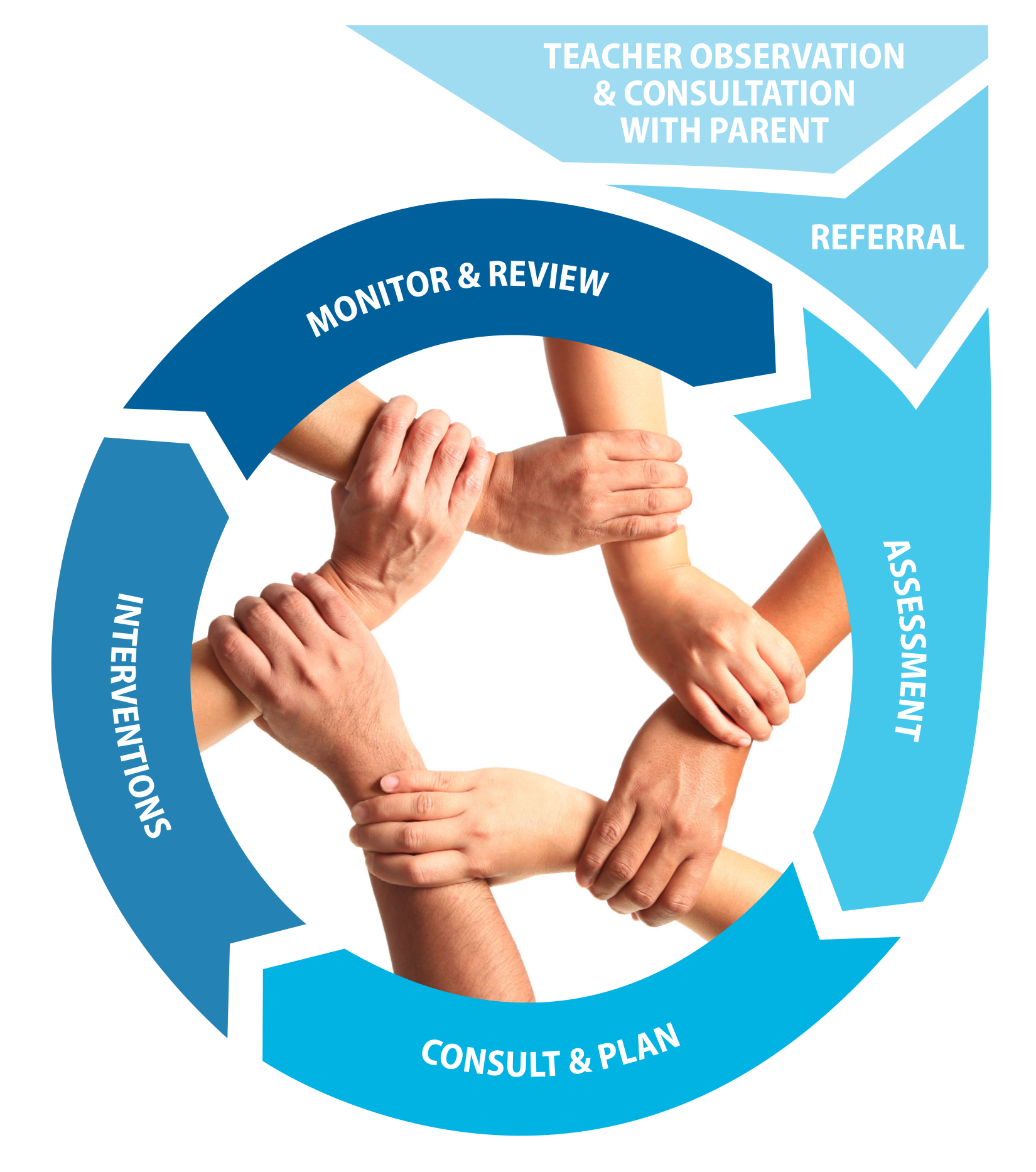The Northwest School Division # 203, Student Services Department, is committed to providing comprehensive support to all students in the least restrictive environment possible. It is our belief that these services and supports can be provided through school based learning teams. This model focuses on nurturing student diversity and meeting special learning needs. It places as much responsibility and accountability as possible with school personnel.
The Student Services Department recognizes diversity in our schools and classrooms and accepts that all students are unique with specific needs and abilities and are affected by a variety of physical, social and cultural factors. We strive to support and foster an inclusive school environment that is supportive, caring and responsive. We offer a continuum of services within the regular classroom, school and community using a team approach.
How does the Student Support Services process work?
The Student Support Services team works closely with students, families, school-based staff and outside agencies in a team approach to provide the best education possible for all students.
Students are usually referred to the Student Support Services team through their school.
Who makes up the Student Support Services team?
School-Based Teams
At the school level, students are supported by the classroom teacher, student support services teacher, school administrators and other support staff.
Parents and guardians play an important role in this process. As part of the student services team, parents help the team to identify goals for the child and the supports that may be required.
These goals become part of the student’s Inclusion and Intervention Plan (IIP).
Student support services teachers (SSSTs) are a critical part of the school team that supports student needs. The SSST supports classroom teachers by: providing consultation and co-planning, providing direct instruction to support individual students or small groups, and by working within the school Response to Intervention (RTI) model to provide interventions.
Additional supports for students are provided using a needs-based model that is comprised of three-tiers: responsive instruction and interventions at a classroom level, or school-wide; targeted and group interventions; and intensive individual interventions.
While we recognize that universal classroom practices will meet the needs of most students, some students will require short-term, targeted supports in order to be successful. A small number of students may require intensive supports, which are provided through a wide variety of services, depending on the particular student.
For more information about Intensive Supports please visit the Saskatchewan Ministry of Education webpage.
Student Services Administration
The Student Services Department is overseen by the Deputy Director of Education, who works closely with the Coordinator of Student Services to supervise the program offerings and staff that make up the Student Services team. The Administrative Support person for Student Services provides clerical assistance to the department.
There are four groups of professional staff that are part of the Student Services Team. Click on the items below to see what supports they provide to families and schools, and to meet the team.
